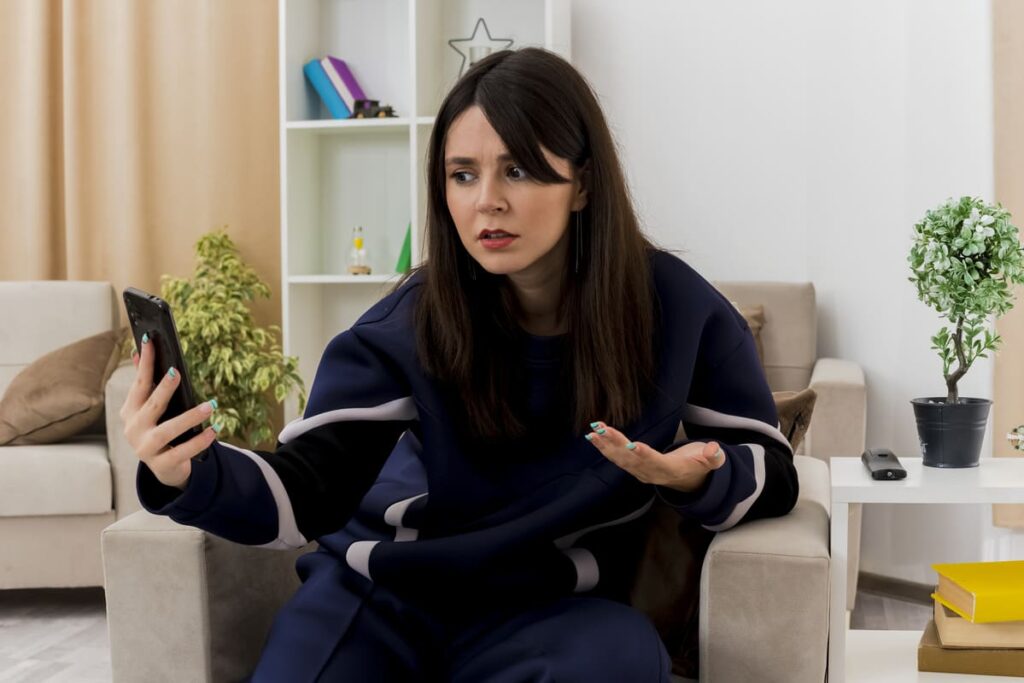Ping. Like. Share. Scroll. Ping. Like. Share. Scroll.
At 2 AM in Bangalore, thousands of thumbs dance across screens in darkened rooms while the city sleeps. A software engineer watches her friend’s Instagram story about a startup that just got funded. Her heart races. A young manager checks LinkedIn at a traffic signal, seeing his batchmate’s Harvard admission post. His stomach knots. A design student lies awake, scrolling through Twitter, watching real-time updates from a conference he couldn’t afford to attend. His mind spins.
They’re all experiencing what marketing strategist Patrick McGinnis named in 2004: FOMO – Fear of Missing Out. McGinnis didn’t discover FOMO; he called an ancient demon. When early humans saw smoke signals from distant campfires, they, too, wondered what celebrations they were missing. The fear of missing out is as old as human society itself.
What’s new is the intensity. Social media didn’t create FOMO – it strapped a rocket to it.
In my clinic, I see its casualties daily. The average young professional in Bangalore spends nearly three hours on social media, consuming hundreds of daily updates across platforms. Each notification is a tiny arrow reminding them of a party they’re not at, a career milestone they haven’t hit, or a life they are not living.
Anthropologists call it ‘social comparison theory on steroids.’ Our hunter-gatherer brains, designed to track roughly 150 stable social relationships (a number established by anthropologist Robin Dunbar), now face a constant stream of updates from hundreds or even thousands of connections daily. We are attempting to process more social information than our brains evolved to handle.
Sociology is equally fascinating. Tech professionals in urban hubs like Bangalore experience FOMO in unique ways. Their constant connectivity, the rapid pace of the tech industry, and the pressure to keep up with technological and social trends create a perfect storm for FOMO. While their counterparts in traditional sectors might clock out at the end of a workday, digital workers often remain plugged into a never-ending stream of industry updates, startup success stories, and professional achievements.
Psychology is where it gets more complex. Research has shown that social exclusion can activate some of the same neural pathways in our brains as physical pain. Each time we see others experiencing things without us, it’s not just emotional discomfort—our brains process it as a form of social threat. Every notification becomes a reminder of what we might be missing, creating a cycle of anxiety and hypervigilance.
FOMO is not just about fear. It’s about hope. Every notification we check, every status we scroll past, carries the whispered promise: “The next best thing could be just one ping away.”
Doctor, my heart races every time I open Instagram.” The 24-year-old patient in front of me grips her phone like a lifeline. Everyone’s at that new brewery in Sahakarnagar, posting stories and tagging each other. And I’m here, stuck debugging code past midnight.”
I have heard many variations of this story. What began as a playful acronym—FOMO, Fear of Missing Out—has morphed into something far more sinister. Over two decades of practice in Bangalore, I’ve watched it transform from a social media buzzword into a full-blown mental health epidemic. Our youth are not just missing parties; they’re missing sleep, peace, and the ability to be present.
Let me paint you a typical scene from my clinic: A 25-year-old startup employee (details altered) slouches in his chair, dark circles under his eyes, telling a story before he even speaks. “I have not slept properly in weeks,” he confesses. “There’s always something happening – a new restaurant opening in Koramangala, a stand-up show in HSR, a trek to Nandi Hills. If I miss anything, it feels like I’m falling behind.” His phone buzzes incessantly during our session, each notification making him twitch like he’s being mildly electrocuted.
In a city famous for its traffic jams, we are all racing to be everywhere at once. Recent global studies have found that young adults in urban areas frequently check their phones, with many reporting anxiety when separated from social media. Tech professionals in hubs like Bangalore seem especially vulnerable to this digital tethering. In my practice, I see patients who check their phones dozens of times per hour, their attention fractured between their physical reality and the endless stream of social updates.
It happens during the quietest moments. You are at home, enjoying your mother’s ragi mudde and soppu saaru, when your phone lights up. Suddenly, you are everywhere but here: watching your friend’s rooftop party in Whitefield, your colleague’s sunset yoga in Goa, and your neighbour’s latest certification celebration. Each notification opens a window into another life you could be living. The warm, homecooked meal in front of you—the one you’d been craving all day—now tastes like a consolation prize.
Neuroscience research has shown that social threats can activate our brain’s stress response system, particularly the amygdala – our emotional centre. When we constantly expose ourselves to carefully curated highlights of others’ lives, our brains can react as if facing a real threat to our social status and belonging. To your brain’s ancient warning system, being left out of the tribe – even digitally – feels surprisingly threatening.
FOMO is not just about missing out on experiences—it’s evolved into something more insidious. I call it the “Achievement FOMO.” A brilliant software engineer recently broke down in my office because she had not started a company by 25, had not bought a house in Bangalore’s premium localities, and had not pursued an MBA abroad—all while excelling at a job she enjoyed.

The impact of chronic FOMO on mental health is concerning. Studies have linked excessive social media use and FOMO to various health issues. Mental health researchers have found connections between FOMO and:
– Elevated stress levels and disrupted cortisol patterns
– Increased symptoms of anxiety
– Poor sleep quality and irregular sleep patterns
– Lower job satisfaction and decreased work focus
In my practice, I see these effects. Young professionals who constantly monitor social media often report feeling on edge, having trouble sleeping, and struggling to find satisfaction in their current achievements.
Then, what’s the antidote to FOMO? Stop watching others’ highlight reels and start creating your own story. A patient of mine turned her FOMO into fuel – instead of joining another pub crawl, she launched her postponed podcast. But here’s the truth that hits hardest: that startup founder whose success keeps you awake? They’re probably in another doctor’s clinic, battling anxiety. That influencer with the seemingly perfect life? They’re discussing loneliness in therapy. Like Bangalore’s gleaming glass towers, social media success stories often mask more profound struggles. FOMO is not about missing out on experiences – it’s about missing out on your life while chasing someone else’s carefully curated illusion.
Research has shown that intentionally limiting social media use can significantly reduce feelings of anxiety and FOMO. Just as we manage Bangalore’s infamous allergies by avoiding triggers, we can manage FOMO by setting boundaries with our digital exposure. My patients who consciously reduce their social media time often report feeling more present, less anxious, and more satisfied with their own lives within weeks.
A word about our unique Indian context: we’re juggling traditional expectations with modern aspirations. One patient described it perfectly: “Doctor, my parents want me to get married, my peers want me to get funded, and I just want to get some sleep!” This cultural FOMO adds another layer to our anxiety cake.
Life is not a Bangalore tech park. It doesn’t need 24/7 uptime.
One of my patients turned her FOMO into an art form – she hosts digital detox dinners where phones sleep in another room while friendships wake up over steaming cups of filter coffee. No posts. No stories. No likes. Just laughter echoing off walls instead of bouncing between screens.
We’ve mastered finding peace in traffic jams, yet we panic in moments of digital silence. But what if missing out is not a bug in your life’s code—what if it’s a feature? What if every notification you don’t see is space for a moment you will remember?
After all, no one ever lay on their deathbed wishing they’d scrolled more!

